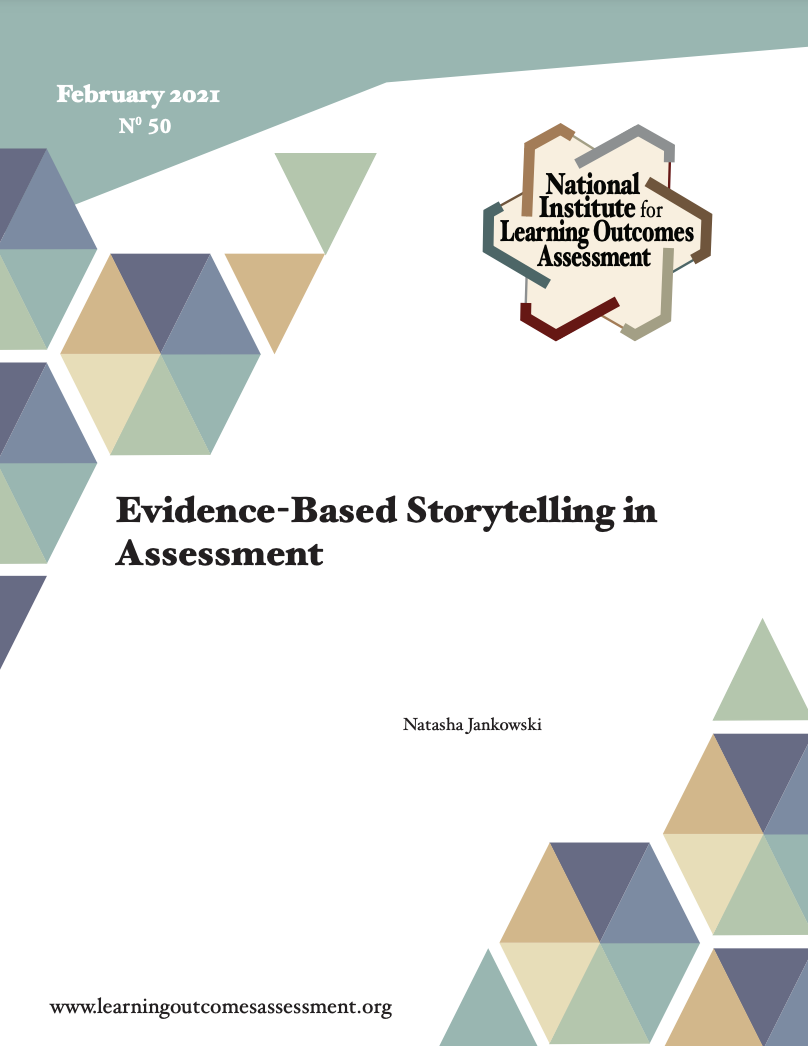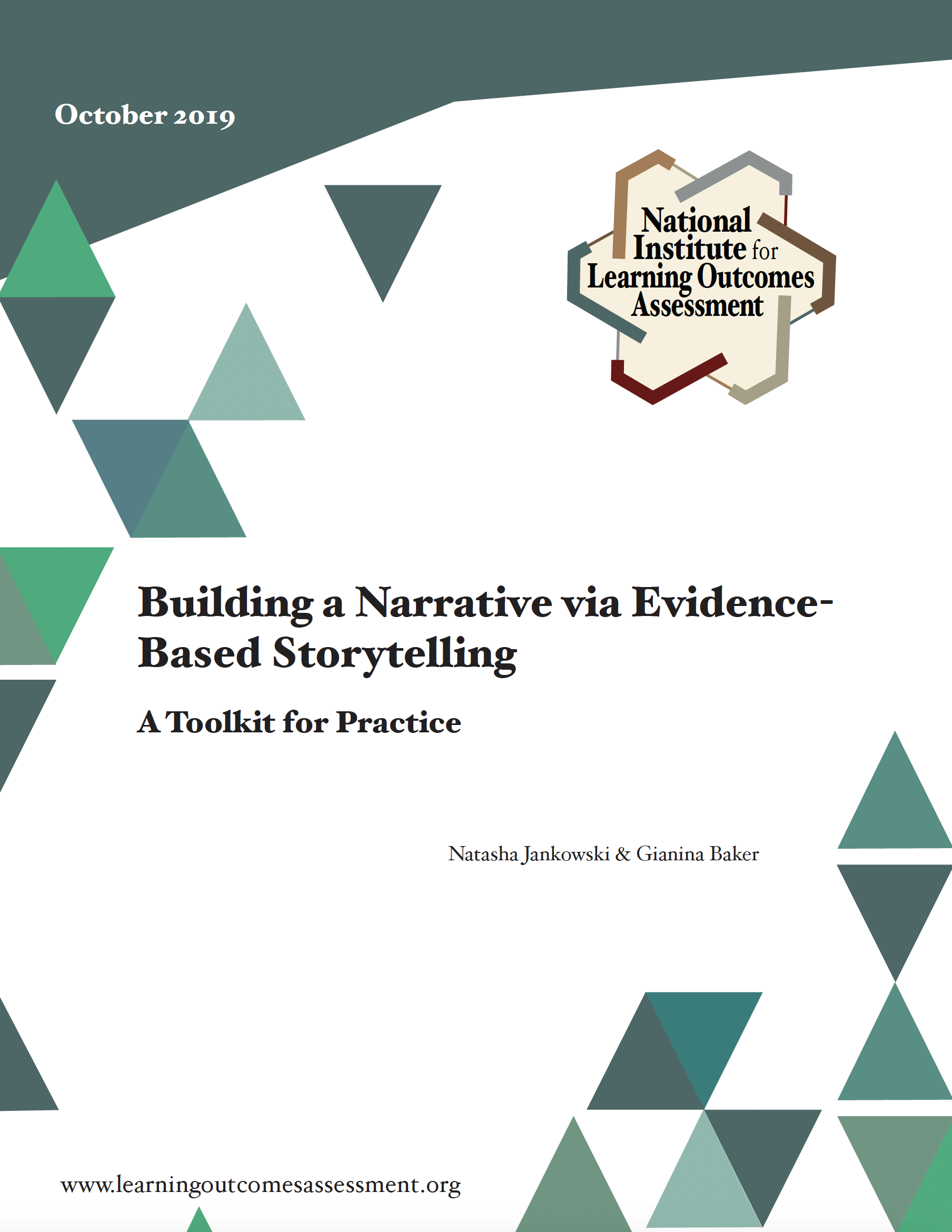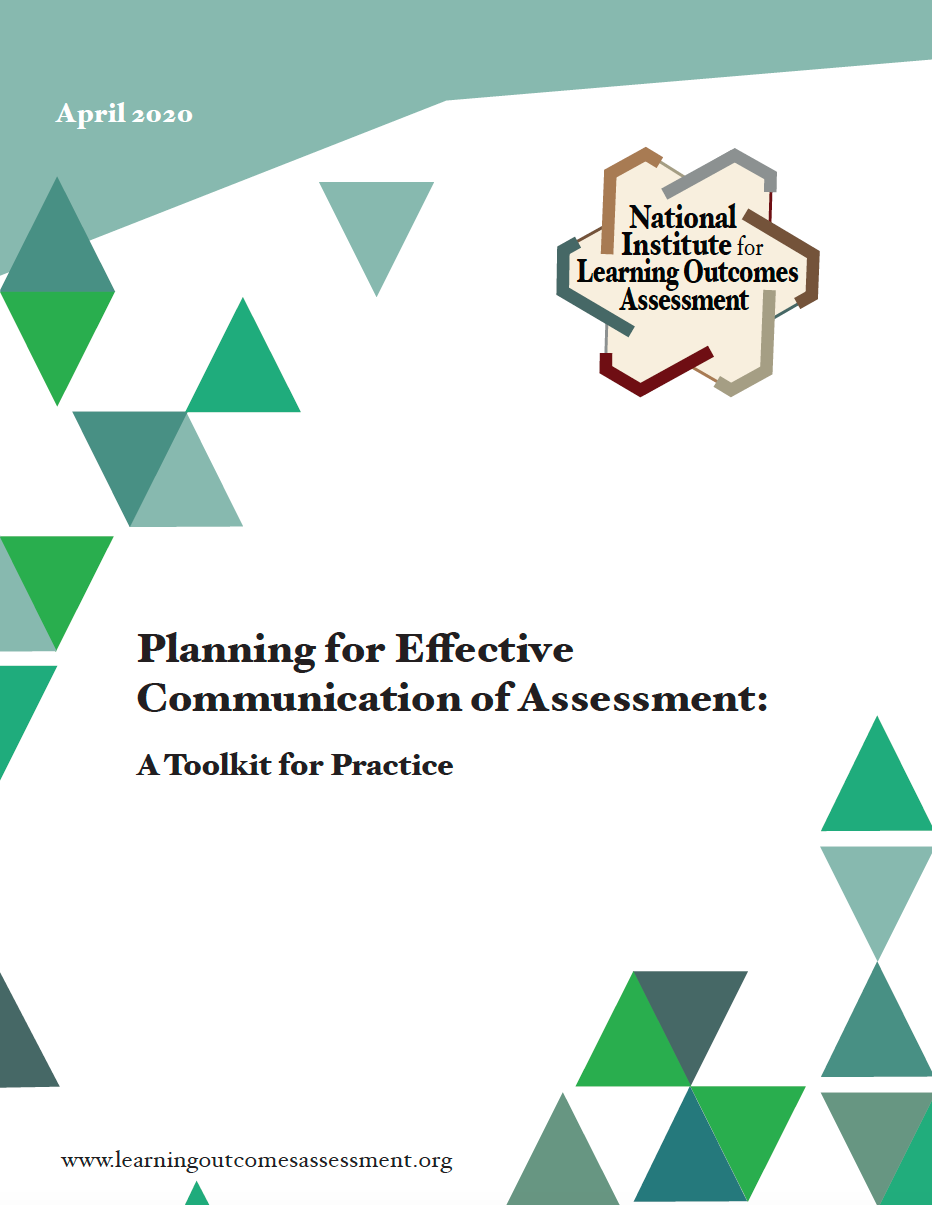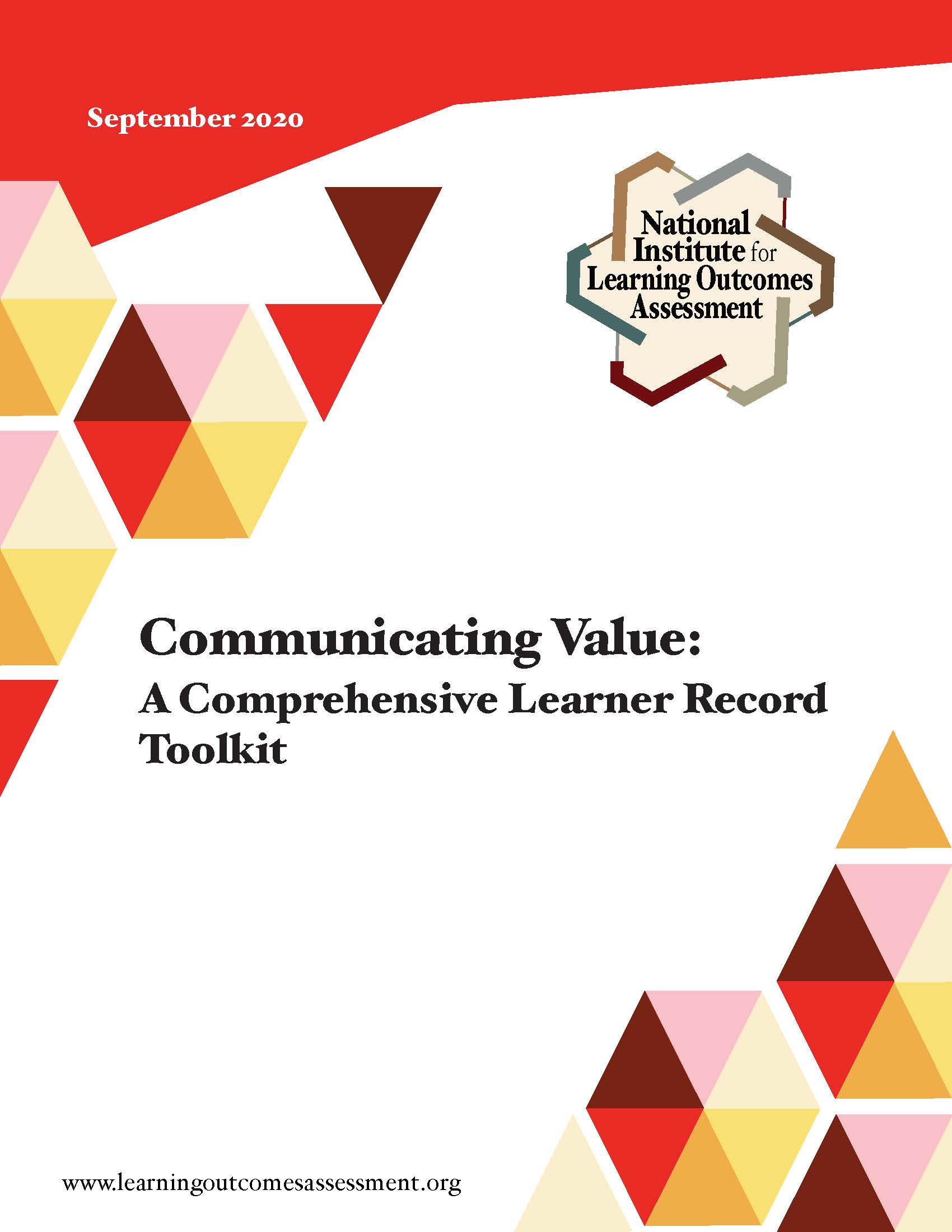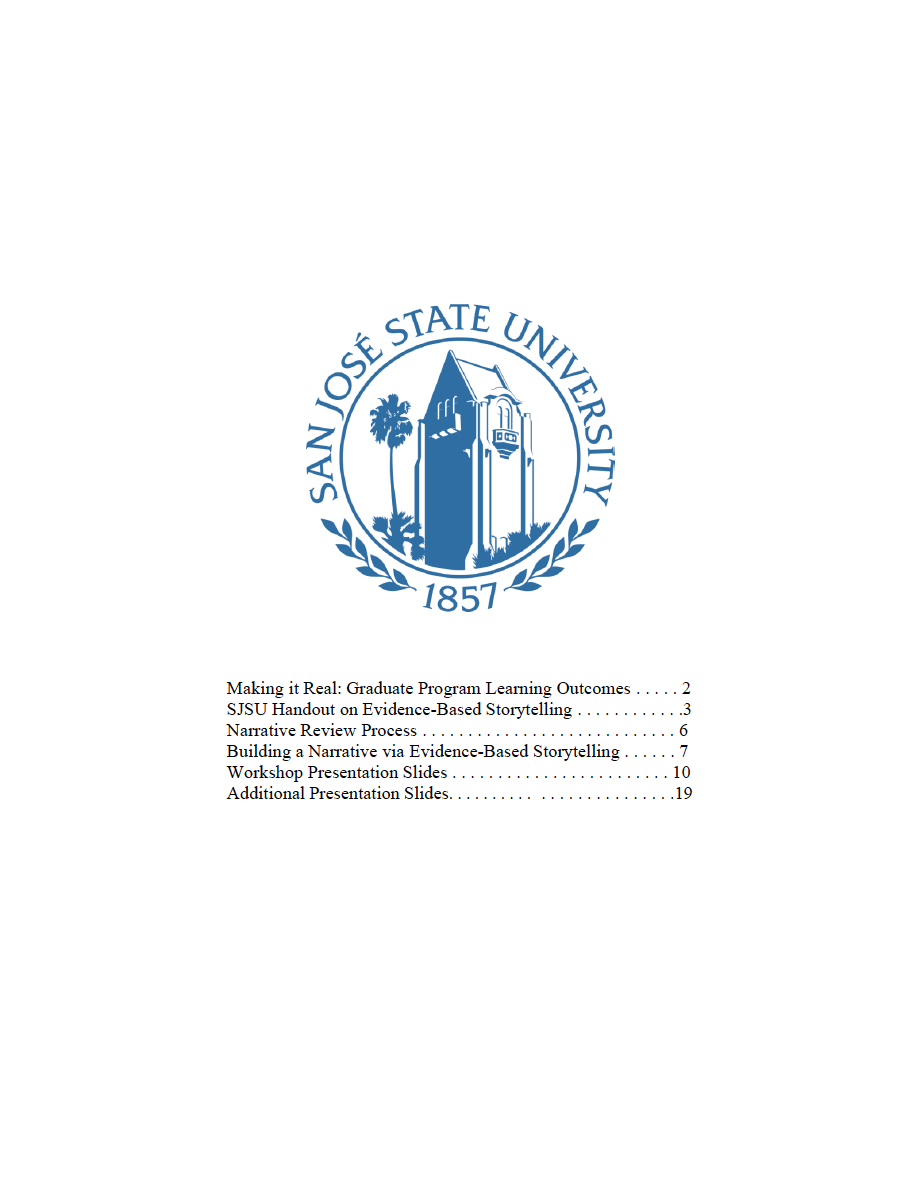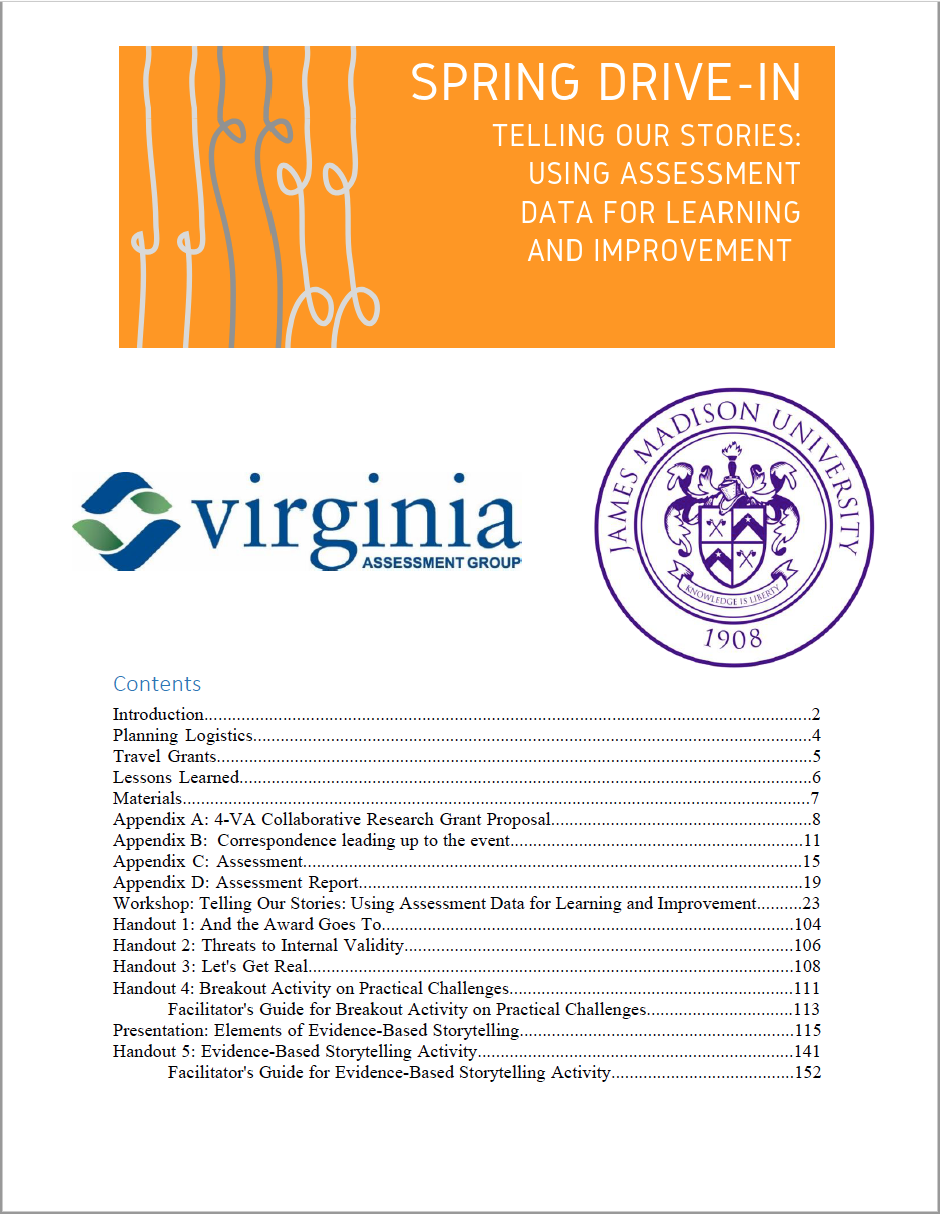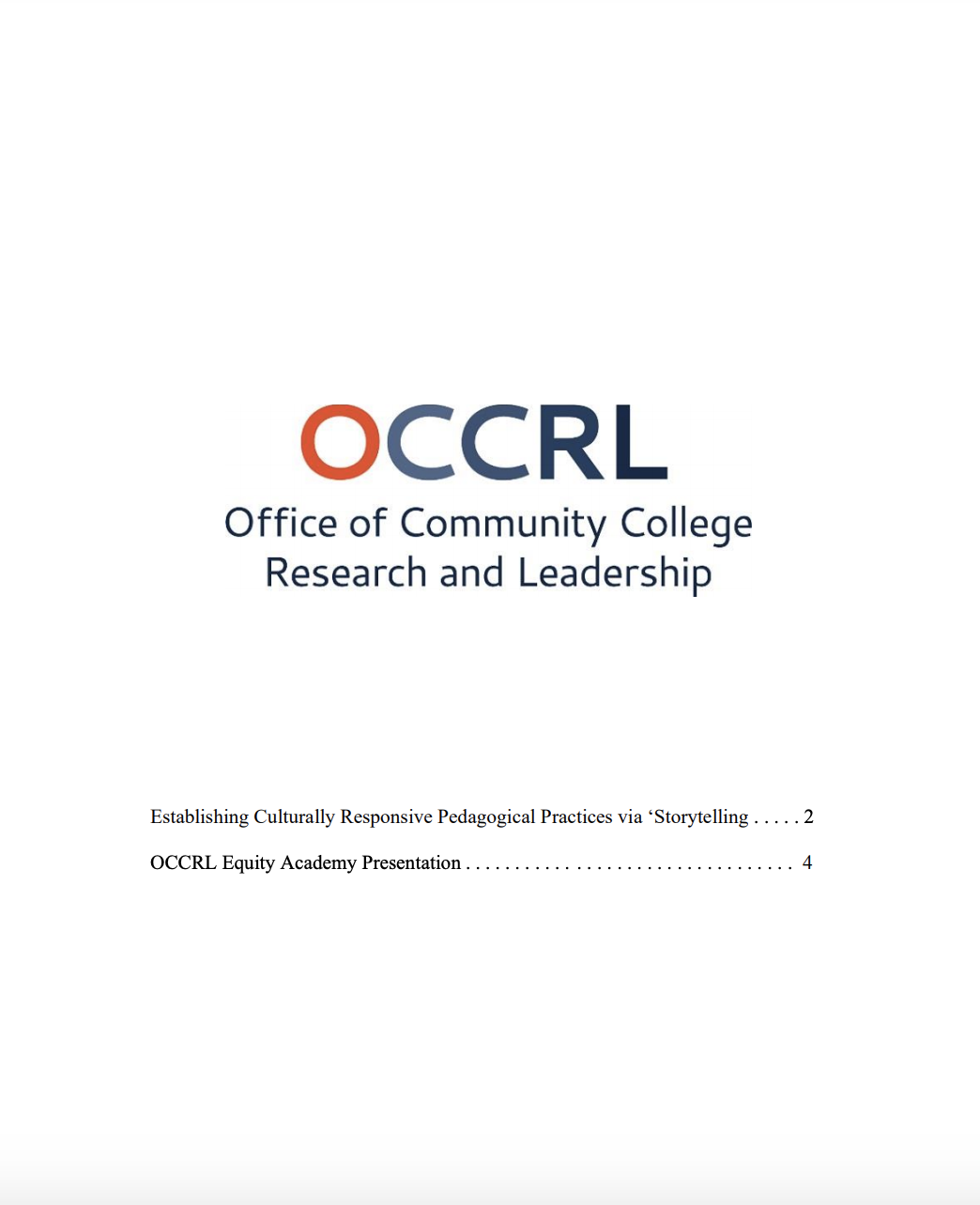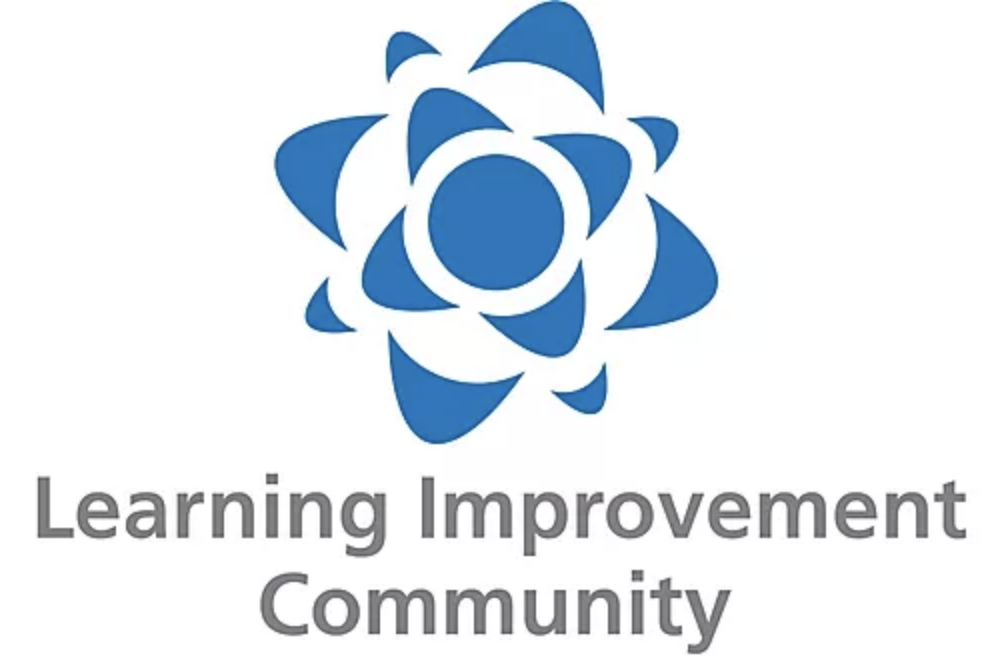Evidence-Based Storytelling
NILOA assists institutions in the practice of sharing assessment data through evidence-based narratives utilizing a collaborative, field-tested peer review process. Evidence-based storytelling, informed by the NILOA Transparency Framework, offers an innovative strategy to help institutions meet current accountability and transparency demands.
To better tell institutional assessment stories using evidence of student learning specific to institutional context and audience, NILOA’s Evidence-Based Storytelling Occasional Paper and accompanying Toolkit provides questions, tools, and resources for consideration in narrative development. Click on each banner to expand the selection and access each resource.
In this highly anticipated occasional paper, Natasha Jankowski helps conceptualize what is meant by Evidence-Based Storytelling (EBST)—an approach used at NILOA to refine and encourage evidence-based stories in assessment. According to Jankowski, two purposes are served within this paper “to re-examine what is meant by use of assessment results and to unpack evidence-based storytelling and its connection to assessment.”
Please cite as: Jankowski, N. (2021, January). Evidence-based storytelling in assessment. (Occasional Paper No. 50). Urbana, IL: University of Illinois and Indiana University, National Institute for Learning Outcomes Assessment.
Building a Narrative via Evidence-Based Storytelling: A Toolkit for Practice is designed to help you think through various elements in the creation of a compelling, evidence-based story. It was developed through document and narrative analysis review of accreditation reports, program reviews, and annual assessment reports. In addition to the individual questions to consider when crafting a narrative, the toolkit includes resources for undertaking a group activity to peer review reports, documents, or data visualizations. This peer review process has been field-tested over the last three years and refined with different groups including assessment professionals, faculty, and institutional research staff.
Planning for Effective Communication of Assessment: A Toolkit for Practice is designed to help you effectively communicate about the value and importance of assessment. Stemming from NILOA’s work around transparency and the Evidence-Based Storytelling Toolkit, this resource helps create a plan to disseminate assessment related information as well as evidence-based narratives. Here, we introduce guiding questions and activities to develop a communications strategy.
Communicating Value: A Comprehensive Learner Record Toolkit is designed to help you effectively communicate the value and importance of Comprehensive Learner Records (CLR). Stemming from NILOA’s work with CLR pilot institutions, this resource provides tools to develop value propositions to make the case for the value and worth of Comprehensive Learner Records.
Our first institutional example for the Evidence-Based Storytelling Toolkit comes from San Jose State University.
Our second practice example comes from the Virginia Assessment Group and James Madison University.
Our third practice example comes from the Office of Community College Research & Leadership.
The Learning Improvement Community, formed in 2017, is a group of assessment professionals and scholars who share a common interest in student learning improvement in higher education, with a particular focus on program and institution levels of learning improvement. The Community promotes learning improvement through a Story Project that collects stories of learning improvement, a library of examples of assessment and learning improvement stories, articles, and presentations/events. We also encourage you to submit your evidence-based stories to the Learning Improvement Community so others may learn from you!
- Lesley D’Souza (Director, Strategic Storytelling & Digital Engagement, Student Experience at Western University): Podcast: Secret Sauce of Storytelling, Higher Ed in Canada, #RyersonSA & Empathic Assessment
- Kate McDowell (Associate Professor at the School of Information Sciences, University of Illinois Urbana-Champaign): A Storytelling Scholar Blog.
- Thrive Online: Western’s Virtual Community: This site is full of students telling their stories!

